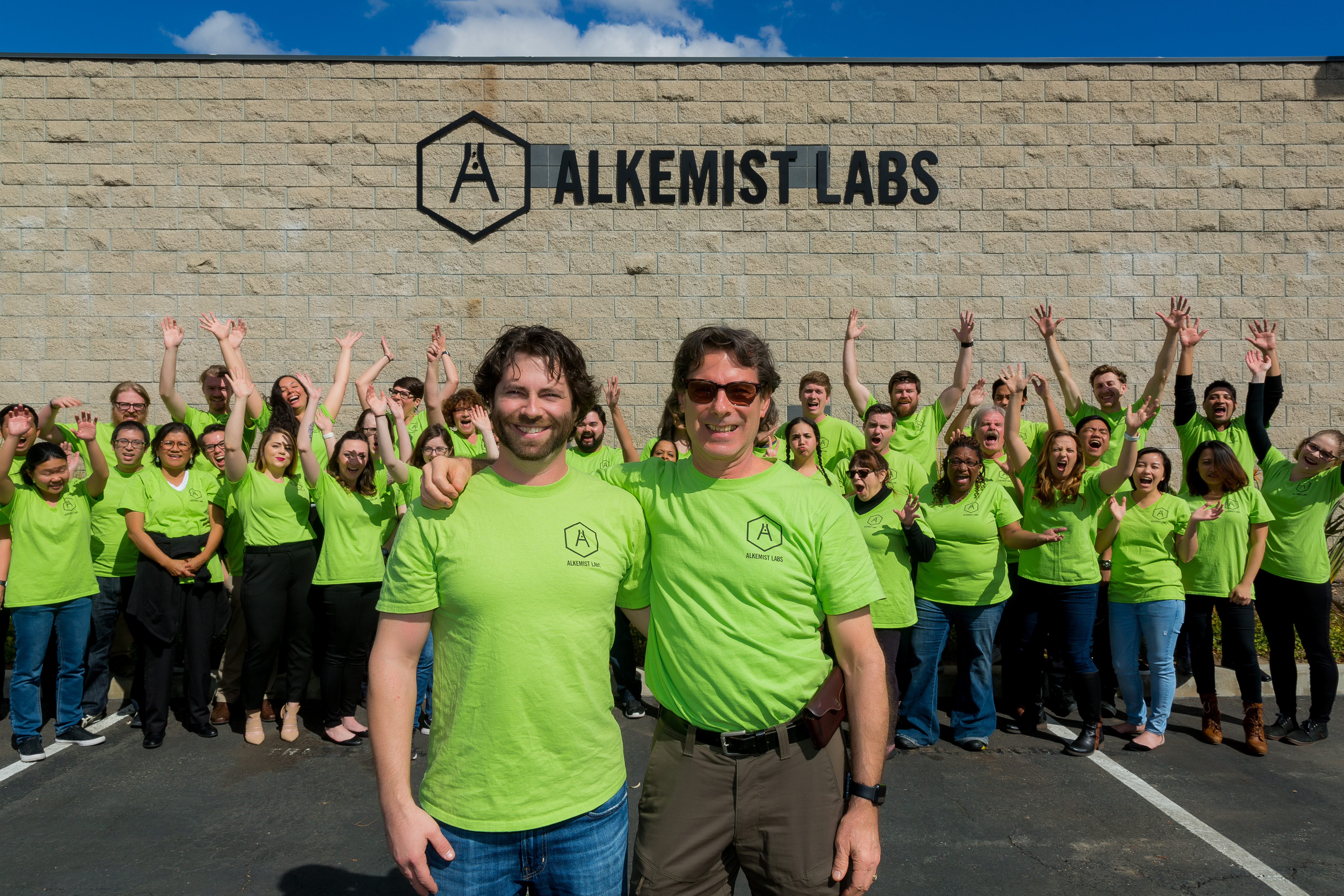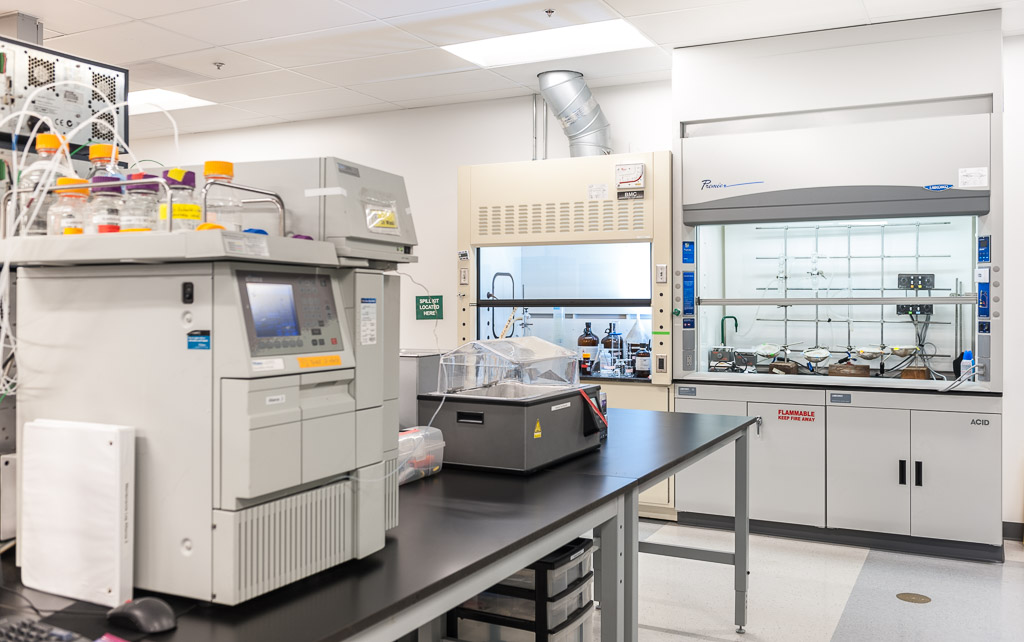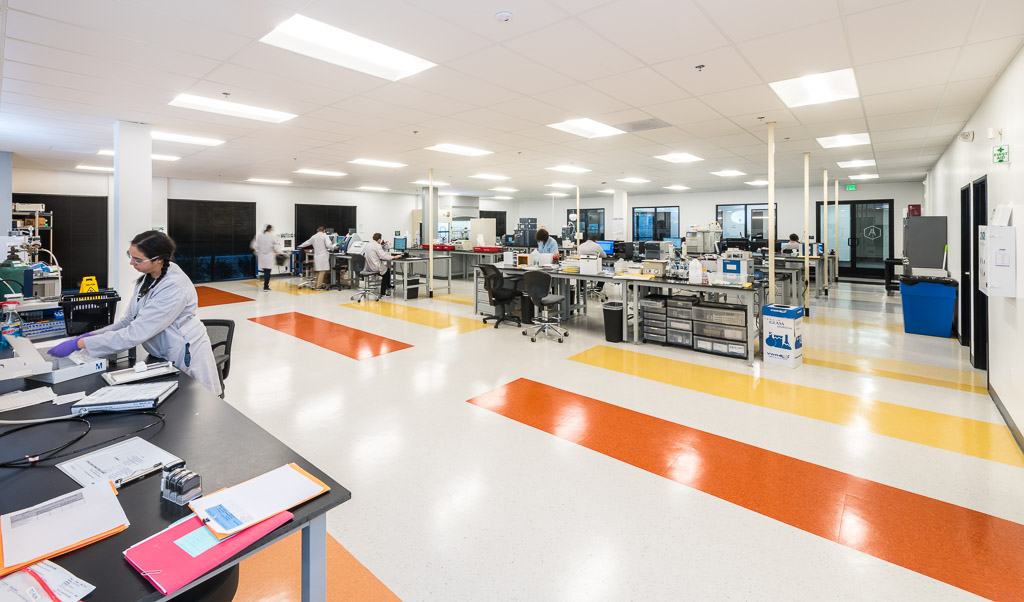Herbalism was humankind’s first medicine option. But when “Big Pharma” was born, the business interests behind it got to work discrediting herbal remedies, recasting them as “snake oil,” or more recently (but no less disparagingly), “alternative” medicine. Though perceptions have started to change, the natural products space is still fraught with misinformation. That same chorus of detractors continues its work, inaccurately claiming that the industry is unregulated and that its offerings are not based on science. Buoyed by the occasional highly publicized scandal from a rare bad player, these unfair perceptions can cast a shadow over even the best herbal supplement producers today.
We created Five Flavors Herbs to provide safe and effective remedies shaped by our professional expertise, modern research, and centuries of traditional healing knowledge. But healthcare requires trust, and trust is earned. With our patients, we build trust over time through personal interactions, often in a clinical setting. But for all the folks who find us through our online apothecary offerings, social media outreach, or blog articles, we have to find other ways to build their confidence in our formulations. And one way to do that is by sharing our quality story—and making sure that story is worth telling!
For our products to work, each bottle needs to contain exactly the ingredients we expect, and nothing we don’t. To ensure this is the case, we partner with Alkemist Labs, a state-of-the-art testing laboratory specializing in plant identification, qualitative analysis, and product safety assurance. We are incredibly fortunate to have this top-tier testing facility in the same state as our Oakland apothecary and production facility. Recently, we sat down with one of Alkemist’s co-owners, CEO Élan Sudberg, to talk about how scientifically rigorous quality assurance testing can help modern remedy makers like us overturn ungrounded stigmas to reach and help more wellness seekers today.
(WATCH A-Day-In-The-Life-Of-A-Test-Sample from Alkemist Labs.)
Interview with Elan Sudberg, Alkemist Labs CEO
Ben Zappin (Five Flavors Herbs): When it comes to natural products, what makes quality testing so important?
Élan Sudberg (Alkemist Labs): Many people have been taught to distrust natural products. Even those who believe plants can have medicinal value often hesitate to buy herbal supplements because they don’t feel like they know what they’re getting. Consumers want to know that what is on the label is what’s in the bottle, and sharing the quality control and assurance practices behind your products is the best way to offer additional assurance to a skeptical buyer. When your products and your messaging is built on quality first, with the data to back up that claim, everyone feels more confident, and everyone wins. That confidence is what Alkemist delivers.
Ben: Could you tell our readers a bit about Alkemist Labs?
Élan: My dad and I started Alkemist in 1997, and we still own and operate the business today. We are an ISO 17025-accredited contract testing laboratory that specializes in plant authentication and analysis. Since our start, we’ve worked hard to become the ideal partner for companies interested in producing high-quality natural products, backed by independent third-party analysis, stability/shelf-life studies, a verifiable Certificate of Analysis, and rigorous cGMP compliance.
At our facility in Garden Grove, California, we offer our clients a wide range of specialty testing services to evaluate the identity, purity, and potency of botanical raw materials, dietary ingredients, and finished products. We produce a complete line of Composite Reference Botanicals (CRBs), which are critical tools for botanical identity verification.
Ben: Why is plant identity an essential pillar of current Good Manufacturing Practices (cGMP) and good quality practices in general?
Élan: Confirming a plant’s identity is the first gate in cGMP compliance. Why bother checking on pesticides, metals, or microbials if the material isn't authentic in the first place? We not only check that it’s the plant it is supposed to be, we confirm that it’s the right part of the plant.
Ben: Can you talk about how Alkemist collaborates with our in-house lab during the quality assurance process, and the kinds of quality testing Alkemist performs on Five Flavors Herbs products?
Élan: The FDA’s guidelines for cGMP compliance sets some specific requirements for testing, but it also leaves a lot of wiggle room for natural product makers to choose their own pathshow rigorous the testing is. FFH uses highly trained staff to test incoming raw materials before they enter the manufacturing process, and then the team passes the finished products on to Alkemist for further analysis.
One of the reasons we enjoy working with FFH is that when we receive one of your products for testing, we know it’s already undergone rigorous assessment throughout the manufacturing process. Six years ago, your Director of Quality, Brian Longmire, completed the American Herbal Products Association’s course on botanical microscopy, which happens to have been taught by the industry’s coolest lab CEO (me). In that course, he learned how to ID unwanted additives, discover adulterants, and positively ID botanicals in their cut and powdered form. Brian has built an impressive botanical expertise on that foundation, and he now puts his skills to use during the FFH production process using a variety of FDA-approved Fit for Purpose test methods to ensure quality, safety, and efficacy.
Ben: Why is identity testing crucial for herbal products makers, and how does Alkemist approach it?
Élan: In 2007, the FDA issued guidelines that dietary supplement manufacturers are required by law to follow that included cGMPs. Identity testing was highly prioritized, but the guidelines did not recommend any specific methods for conducting it. Through study and experience, we’ve learned which types of identity analysis are most appropriate for each kind of sample.
Alkemist uses existing compendial and pharmacopeial testing methods whenever possible, since they have been rigorously forged and peer reviewed. Given our time-tested expertise, we are also able to develop and validate methods for mixtures of different ingredients as needed. Two of our core methods, botanical identity by HPTLC and microscopy, are proudly ISO 17025 accredited by the respected lab accreditation organization A2LA. Some of our analysis of botanical ingredients and products is done using organoleptic testing or microscopy.
Ben: When would you choose to use organoleptic testing?
Élan: One of our most preferred testing methods for evaluating raw botanical ingredients is also one of the oldest and most traditional: organoleptic testing. Organoleptic testing involves using our human senses—especially sight, smell, and taste—to confirm identity by comparing the test sample with a proven reference sample from our materials library. With proper training and appropriate test samples (powdered ingredients won’t work here), organoleptic is often an appropriate and accurate identity testing technique when done by skilled experts.
Ben: How about microscopy?
Élan: If the material to be tested is powdered or otherwise significantly processed (if it has been made into a tincture, for example), then it must be analyzed by other techniques. Microscopy is the study of a material using a microscope. Microscopy analysis is still a fairly simple process that relies on human observation, but it can be a more reliable method for detecting unwanted fillers than many forms of chemical analysis.
One of my favorite parts of our lab is the reference text collection. While I have a few originals, for practicality’s sake, we have copies of books over 100 years old that are invaluable for macroscopy and microscopy. Of course, we also have more recently published texts that we use for other analysis techniques.
Ben: You mentioned using reference samples for organoleptic testing and microscopy. Where did all those samples come from?
Élan: When we first started the lab, we became fast friends with Roy Upton, Founder and President of the American Herbal Pharmacopoeia (AHP). He was in the early stages of compiling official monographs for the AHP and needed some botanical microscopy photos. We struck a deal in which he agreed to send us authenticated plants and the copies from old texts, and we would use them to create color micrographs he could use for his monographs. Slowly, we worked through the botanicals he needed while at the same time populating our herbarium. We have an extensive network of contacts in the herb business, so upon the rare occasion when we need a reference material not already in our extensive library, we are able to acquire one. We are forever grateful to Roy and to his and AHPs service.
Ben: Roy was actually one of my original teachers in Santa Cruz in 1995, and he definitely played a major role in fueling my passion for the integrity in herbal products, natural healthcare accessibility, and the power of botanicals to have a transformational effect on the body. Ingrid [Five Flavors Herbs co-founder] and I are fortunate to maintain our relationships with Roy and the AHP, for which Ingrid currently serves as Medical Advisor. It’s easy to see why Alkemist Labs is so highly regarded for its expertise, when your testing processes are built on such a solid foundation!
Based on your experience, how common is adulteration of botanical products right now? What are some of the most commonly adulterated botanicals you encounter?
Élan: Since most of our clients are the best in the business, we actually don’t see much adulteration these days. I’d say the most popularly adulterated herb in today’s market is elderberry, fueled by an explosion of mainstream demand for elderberry products for their immune support benefits. Other plants we commonly see misidentified include germander herb passed off as skullcap herb, wooly foxglove leaf passed off as plantain leaf, and even amaranth dye (aka “red dye #2”) passed off as bilberry extract...the list goes on. Sometimes we’ll see a product that is supposed to be just, for example, the root part of the plant that is adulterated with stems and leaves. This may lessen the active power of the product, depending upon the herb.
When we first started testing (24 years ago), the occurrence of adulteration was much worse. Now, we tend to see more poor quality materials than we do overt adulteration.
Ben: How does product testing through an accredited lab like Alkemist help natural products makers strengthen their brand and business?
Élan: Labs are the gatekeepers of quality and can basically make or break a product and or brand. A transparent, competent, and accredited lab provides our clients with layers of confidence in their products’ quality, safety, and efficacy, including quantitative and qualitative documents that help them pass that confidence on to their customers (and pass FDA inspection).
Take, for example, the Certificate of Analysis. Each sample we test goes through multiple kinds of testing, and the findings from all these tests are detailed in a Certificate of Analysis document, or C of A, which serves as a window into the quality of a product. Our C of As include full method disclosure that would enable total reproducibility of the analysis by any other lab. Our clients can make these C of As available to any customer who asks for them, giving them a transparency edge over brands clinging to the old-school practices of providing only vague quality summaries and hiding ingredients behind the veil of “proprietary” formulations.
We encourage our clients to share the testing results for all their ingredients, all the way through the life of their products. It’s time to bring quality out of the closet, and put it to use as the powerful tool it is for elevating the reputation of the natural products space. Your “ingredients” label makes a powerful statement about what your brand stands for, and rigorous lab analysis can give you the assurance you need to broadcast that statement loudly and proudly.
READY FOR TRUSTWORTHY REMEDIES?
EXPLORE OUR ONLINE APOTHECARY
You might also enjoy:
- Our Custom Herbal Formula Dispensary for Practitioners
- Pedicularis Benefits & Insights from Chinese Medicine
- The Five Flavors in Traditional Chinese Medicine
Written by Élan Sudberg & Benjamin Zappin, LAc:
Élan Sudberg is CEO of Alkemist Labs, a passionately committed contract testing laboratory specializing in plant authentication, botanical ingredient identification, and quantitative analytical services. He holds a degree in chemistry from California State University Long Beach and has authored numerous journal articles on phytochemistry and analytical techniques for the natural products and nutraceutical industries. He is a board member of AHPA, as well as AHPA’s Education and Research on Botanicals Foundation, and past chair of the Hemp and Medical Marijuana committee. He received the 2019 NutraIngredients-USA NutraChampion award for advocacy of best testing practices.
Five Flavors Herbs co-founder Benjamin Zappin is one of the Bay Area's most respected and knowledgeable herbalists and a licensed acupuncturist. With over 20 years of experience, Benjamin synthesizes his deep knowledge of Chinese and western herbal medicine with modern medical perspectives to create effective herbal formulas and treat patients. He serves patients through Paeonia Integrative Medicine.




